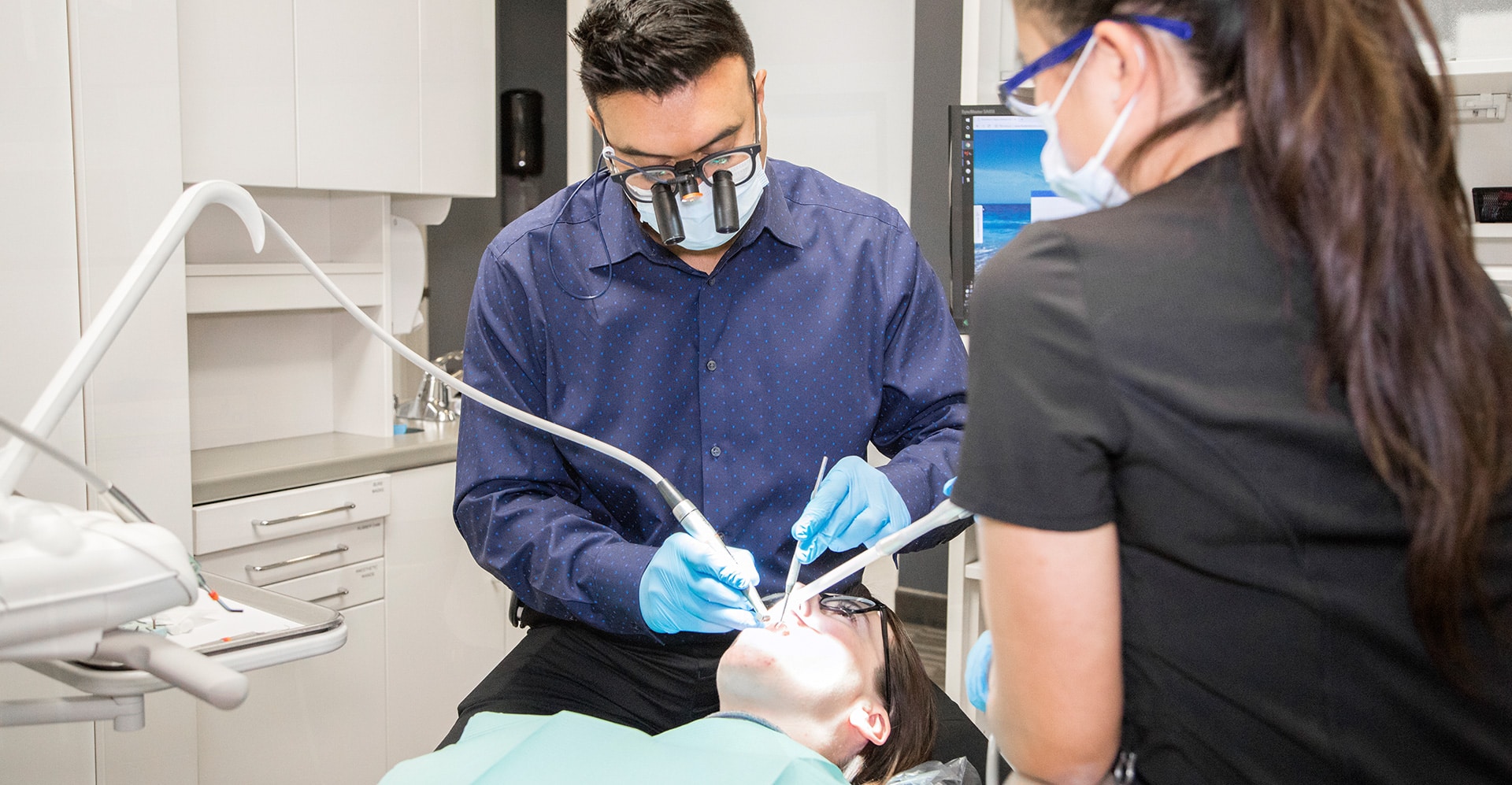A dental prophylaxis involves thoroughly cleaning the teeth. Dental prophylaxis is essential for preventing periodontal disease and gingivitis from progressing.
When bacteria from plaque colonize on the gingival (gum) tissue, either above or below the gum line, periodontal disease and gingivitis occur. Inflammation and irritation caused by these bacteria colonies produce a chronic inflammatory response in the body. Therefore, the body begins to destroy gum and bone tissue, resulting in teeth shifting, becoming unstable, or falling out completely. The pockets between the gums and teeth become deeper and hold more bacteria that can travel to other parts of the body via the bloodstream.

Keeping the oral cavity healthy and halting the progression of gum disease is achieved with prophylaxis.
Prophylaxis has the following benefits:
It is possible to perform prophylaxis during a regular dental appointment or under general anesthesia, if necessary. The latter is particularly common in cases where severe periodontal disease has been diagnosed by a dentist or suspected by the dentist. Sometimes an endotracheal tube is placed in the throat to prevent harmful bacteria from entering the lungs.
Generally, prophylaxis consists of several stages:
In order to prevent periodontitis, prophylaxis should be performed twice annually, but it should be performed every three to four months for patients suffering from the disease. Despite the fact that gum disease cannot be completely reversed, prophylaxis is one of the tools dentists have at their disposal to stop its destructive progress.
Please contact your dentist if you have any questions or concerns about prophylaxis or periodontal disease.
Our dentists pride themselves on putting your needs first and offering FREE PARKING — a rarity for downtown dentists. We care and we listen. Our dentists have years of experience and are here to serve your needs at every appointment. If you have a question about your smile or need a second opinion, we’re here to help.

The Dental Room has been serving the community for several years in Downtown Calgary. We provide our patients with high-quality, affordable, and comprehensive dental care. In our general dentistry clinic, we utilize the latest in dental technology and techniques. Our goal is to provide a healthy and beautiful smile for a lifetime.
| Monday | 10:00 a.m. – 06:00 p.m. |
| Tuesday | 09:00 a.m. – 02:00 p.m. |
| Wednesday | 09:00 a.m. – 05:00 p.m. |
| Thursday | 09:00 a.m. – 05:00 p.m. |
| Friday | CLOSED |
| Saturday | CLOSED |
Copyright © The Dental Room All Rights Reserved